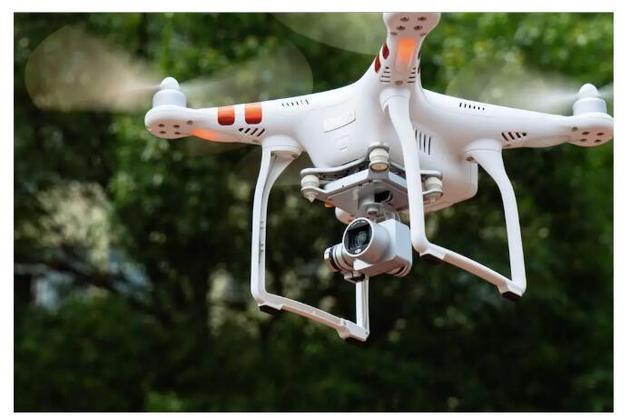China Business Corner: ByteDance takes aim at WeChat with Duoshan, a Snapchat-like video app

China Business Corner is a weekly window into Chinese-language coverage of business, technology, and the broader economy, brought to you by co-writers Huang Sizhuo and Jordan Schneider (who hosts the ChinaEconTalk podcast). Sign up here to get this column in your inbox every Thursday.
Last week on China Business Corner, we covered China’s reigning king of social, WeChat’s Allen Zhang. Yet there are plenty of young contenders gunning for the throne.
Today we’ll be taking a deep dive into ByteDance’s latest product, the video chat app Duoshan (多闪 duōshǎn), literally “multi-flash,” which functions a lot like Snapchat. The product was developed with a cool $75 billion valuation behind it, leading many to ask whether it might make a dent in WeChat’s market share.
(Also see TechBuzz China’s most recent episode, which provides an overview of potential WeChat challengers.)

Toutiao Duoshan poses threat to WeChat
头条多闪了一下微信的腰
By Liu Jingfeng 刘景丰 on Huxiu 虎嗅
January 16, 2019
On January 15, ByteDance held a fancy product launch event, its first ever, in Beijing’s 798 Art District. While WeChat’s billion users include practically every segment of Chinese society, many of ByteDance’s products target users under 30. Illustrative of this, ByteDance trotted out product manager Xú Lùrǎnu 徐璐冉, just 25 years old, to launch Duoshan, a video chat app. (WeChat founder Allen Zhang is 49.)
What, according to the product people at ByteDance, does China’s youth need? A way to send short videos to each other without pressure. “Unlike WeChat’s ‘Moments’ feature, there won’t be a way to publicly comment or ‘like.’ All you’ll be able to see is who viewed your video,” Xu said. All comments will be reserved for one-on-one channels. This design decision was made to “relieve social pressure” that can be so rife on WeChat
According to ByteDance’s head of product, Zhāng Nán 张楠, Douyin/Tik Tok users were frustrated by their inability to easily send friends videos they had made or seen.
Duoshan’s launch date — just a few weeks before Chinese New Year — wasn’t a coincidence. For the weeklong national holiday, practically all of China goes home to hang out with extended family. Young people, like young people everywhere, get bored of their families, and without their regular routine or real-life social network, search for new stuff to do.
Last year’s Chinese New Year was Douyin’s breakout moment, in which it was able to rack up 42 million downloads thanks to a combination of virality and super mega red packet promotions featuring livestreaming celebrities doing Q-and-A’s. (“Red packets” are what people stuff money into to give as gifts during holidays and special occasions. Our very own Jordan Schneider tried and failed to open actor and wannabe rapper Kris Wu’s mega red packet.) Duoshan, with its video red packet feature (currently requiring a Chinese ID, so foreigners are out of luck…) and big New Year giveaways, hopes to make a similar splash this year.

The App in its current iteration feels like a mix between Snapchat and Vine, but with aspirations to grow into a payments platform as well. Its filters are no joke, and it has trending stickers alongside some pretty localized emojis.
Ironically, while ByteDance seems to be taking cues from Snap, Snap CEO Evan Spiegel’s disastrous redesign of Snapchat came after a visit to ByteDance’s Beijing headquarters.
According to the Wall Street Journal, “After a visit to China, he decided the messaging app needed an overhaul inspired by trends he saw there…Mr. Spiegel in October 2017 met in China with executives of a news-aggregator app popular there. He thought he could try a similar design — one that made a tailored news feed for users based on habits — in hopes of differentiating Snapchat from Instagram, say people familiar with his thinking.”
Will ByteDance absorb better lessons from Snapchat than Snapchat did from ByteDance? Stay tuned to China Business Corner to find out.
(Jordan seems to like it.)


DJI hemorrhages a billion yuan due to corruption
45个人,10亿+损失!中国最耀眼科技公司,对这些人下狠手了
By Zong Xu宗旭 for National Business Daily 每日经济新闻
January 20, 2019
Who is the shiniest star among Chinese tech unicorns? Shenzhen-based DJI, known for developing and manufacturing unmanned aerial drones, may be the answer for many. But it was recently reported that DJI has lost more than 1 billion yuan ($145 million) due to corruption. On January 17, DJI released an announcement that it has launched an anti-corruption campaign to rectify the situation.
The report says 45 DJI employees have been caught; 29 of them have been fired, and 16 questioned by authorities. In particular, DJI staff involved in supply chain management were bribed significantly; they allegedly increased the material prices and shared the additional profits with the suppliers.
DJI is hardly the first private Chinese company to be caught in a corruption scandal. Meituan Dianping, Alibaba Music, Wanda, and 58.com have all recently outed senior employers for inappropriate behavior, and launched internal anti-corruption campaigns.

Pinduoduo loses millions in coupons after users exploit bug
最前线 | 拼多多出现漏洞或已造成数千万损失,公司称已经报警
By Wu Mengqi 吴梦启 for 36Kr
January 20, 2019
In the early morning of January 20, Pinduoduo users found that the ecommerce platform was offering an unlimited number of free 100-yuan coupons. Of course, these coupons weren’t actually issued by the company — they were released by tech-savvy users who took advantage of bugs in Pinduoduo’s system, which weren’t fixed until 9 am. As a result, Pinduoduo lost nearly $1.45 million from coupon orders — money they’re now trying to reclaim. The company filed a police report.
Pinduoduo has yet to provide solutions for customers who ordered products using these coupons. As one user commented on the 36Kr article: “Why did Pinduoduo call the police? It was their own fault for not fixing these bugs.”
“It’s a new type of marketing,” someone else suggested.
Pinduoduo (NASDAQ: PDD) is one of the fastest growing Chinese companies. It was founded in 2015 by Colin Huang, and IPOed in the U.S. in July 2018. Pinduoduo encourages group purchases — the more people, the cheaper the product — but it has been criticized for stocking fake products and inferior quality goods.










